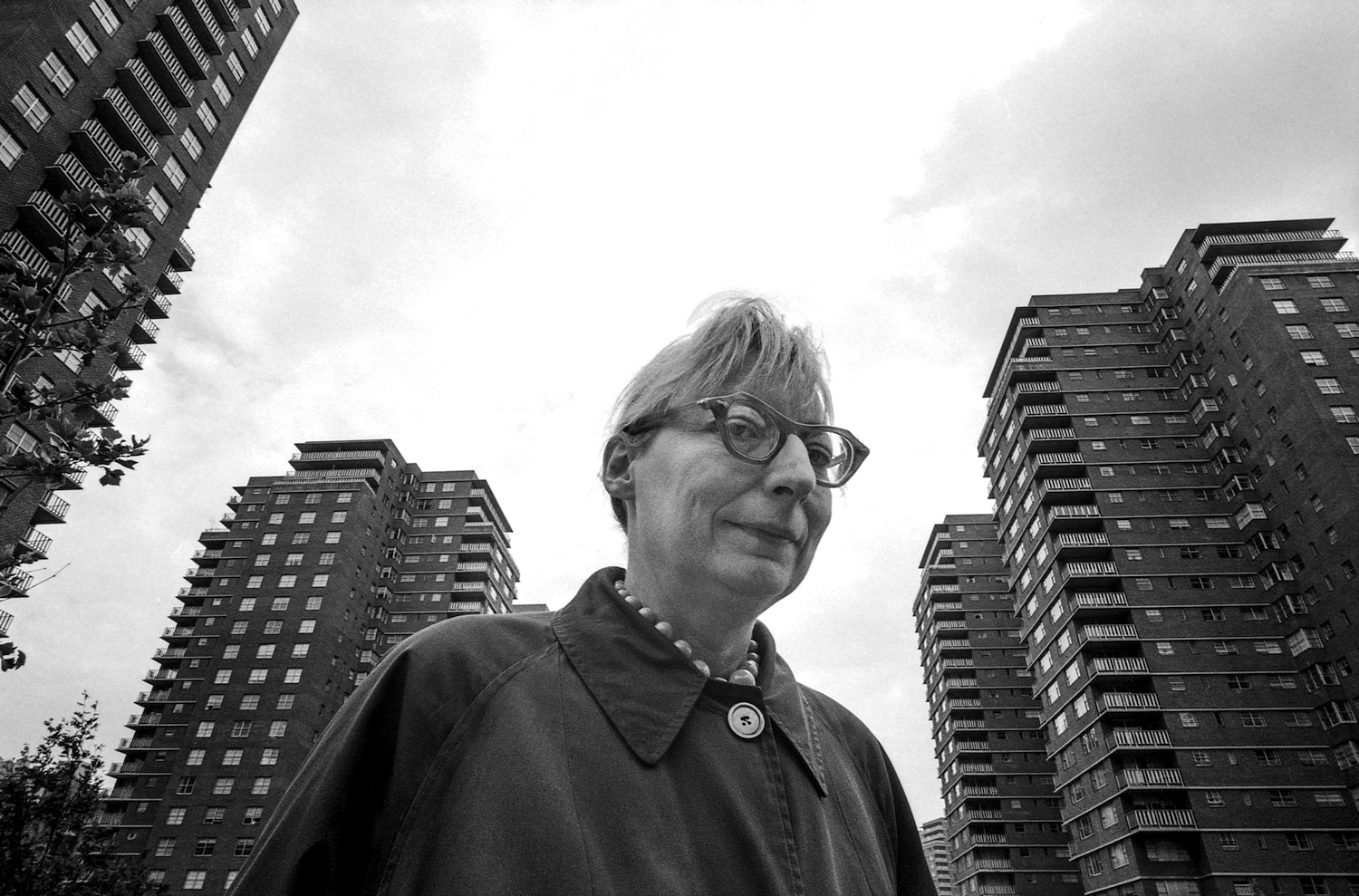Jane Jacobs: Citizen, Activist, Good Neighbor
In New York City during the 1950s there was a famous battle between resident Jane Jacobs and city developer Robert Moses over whether or not New York could demolish more than 1,000 homes to put in an expressway. After years of fierce debate and passionate organizing, Jacobs effectively helped block the plan and saved a large part of New York. Her victory resonated across the U.S. and Canada for decades and helped preserve the rights of citizens to have a say in what happens to their communities. Today, Jacobs’ historic fight against forced development has inspired a new generation to be more active not only in promoting good urban planning, but good citizenship as well.
Personally, I am inspired by Jacobs because she was an ordinary person who did not fall into any strict modern-day “ism” or political camp. She was a journalist, author, a loyal wife, and a faithful mother of two children who cared about her community. Her view of America was not simply as a marketplace with skyscrapers where you can buy lots of new toys and stress out about getting the biggest car or newest iPhone. It was about shared humanity. Being an American to her meant being an informed, active citizen – not just a consumer.
I believe Jacobs’ life highlights the essential need for local activism, and the negative consequences in any culture when people neglect their civic obligations and instead choose endless consumption over community involvement. There are several important concepts about activism I want to discuss that Jacobs exhibited in her life and that deserve some notice.
First, look in the mirror and be honest about who you are and what you can do well. What made Jacobs effective was not financial backing from secret donors or promoting violence in someone else’s community. What made her effective was that she was living in New York, and her cause was also her neighbors’ plight. What affected her husband and children also affected other people’s families. What was disrupting her life was also disrupting the lives of her neighbors. This is important to recognize. A person might be concerned about an issue and want to organize people to affect change, but unless they personally have something at stake and are from the community in which they want to see change, people will be hesitant to listen. Do you really care? Are you ready to openly debate the issue? Can you make a long-term commitment to see the process through to the very end, whether you win, lose, or compromise? If not, then do not get involved.

Second, everyone should dedicate some time in their life to look at their community and identify real problems. Jacobs walked through her neighborhood every day and openly challenged government assessments that her neighborhood was only a slum and needed to be torn down. So, maybe once a week, take a walk through your community and look at things like the roads, sewers, or garbage collection. Ask yourself what changes need to be made to make these things work better. For example, maybe there is trash everywhere, and it makes the city look terrible. You can then ask questions: How much would it cost to adopt a more efficient garbage collection system? Are citizens being provided with convenient facilities to properly dispose of trash? What have other modern cities done to manage their trash? The solution to the problem may be as easy as providing the community with bigger trash bins or as complex as increasing taxes to fund more consistent trash collection. But maybe the problem you see is more serious, like children being hit by cars. Instead of waiting for another accident, there should be an immediate analysis of streets, crosswalks, and what makes for a safer environment for all pedestrians. If citizens are actively identifying problems and proposing solutions, then resolutions can be more quickly achieved, and the government is more effective.
Lastly, part of living in a healthy democracy is learning to respect the validity of other people’s perspectives and seeking a broader understanding of those differences through public debate, especially if you are all sharing the same tax dollars. One of the criticisms that Jacobs faced was that she was not taking into consideration the need for New York to address its traffic congestion. The counter criticism was that Moses did not care about Jacobs because she was a woman, and he cared even less about the needs of small communities. And this is why public debate is so important – so everyone involved can hear what is going on. For example, in America, the state of Montana offers the right to openly carry a gun. The people of that state voted for this freedom, but in California they did not, so it is illegal there. The issue was debated, and each state chose what was best for its citizens. Likewise, in parts of California the minimum wage is being raised to 15 dollars an hour. But rural regions of America cannot handle this increase, and the long-term economic consequences are still being addressed, so it is still not national law. But whatever the issue, public opinion should be considered, and debate should always be pursued. Without an open, fact-based discourse, democracy may stagnate or be threatened.
As we celebrate women’s history month, Jane Jacobs should be remembered, not just as a former New York City activist, but as a person who inspired all of us to be better caretakers of our cities and of democracy.







